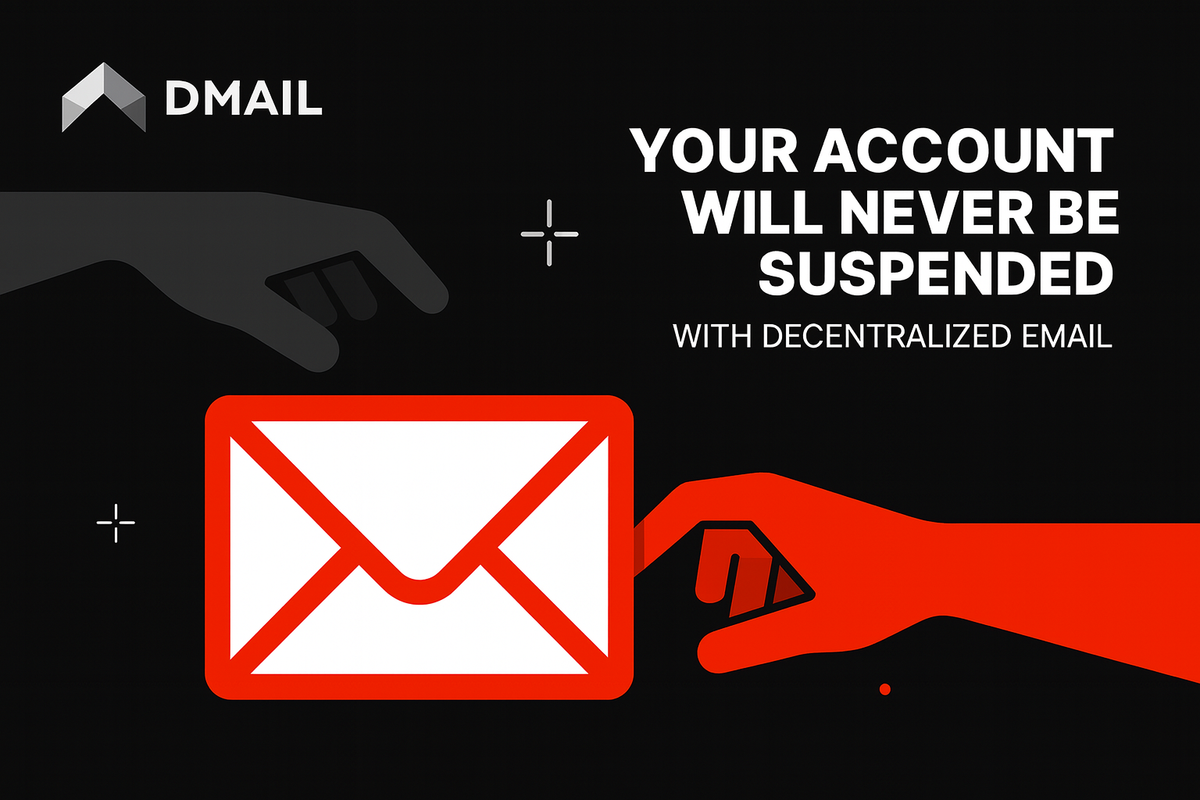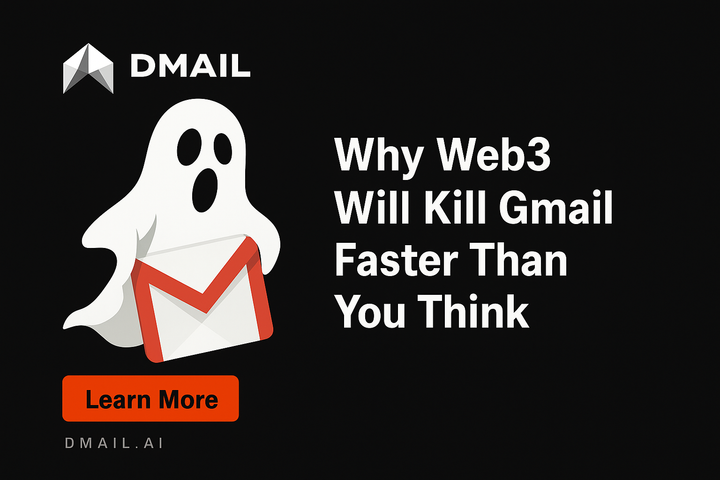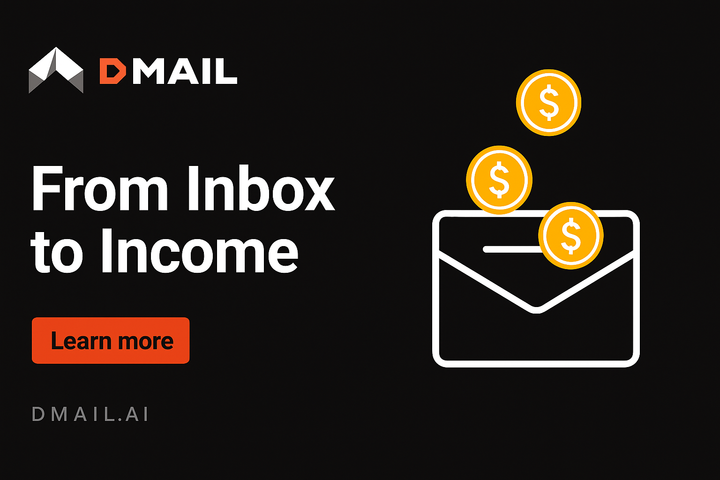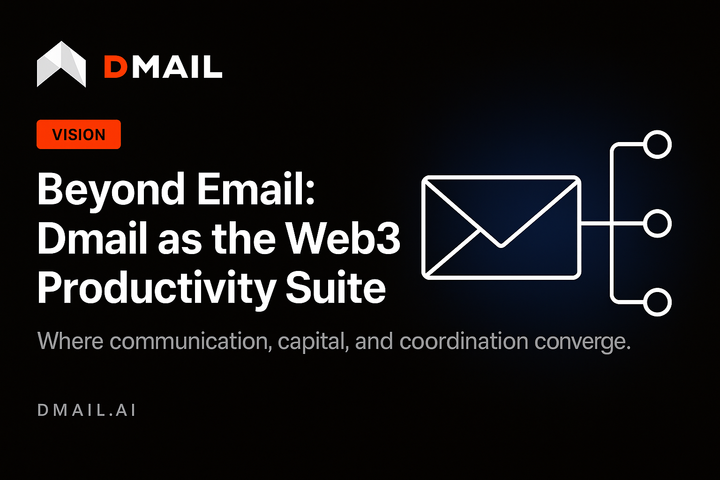ProtonMail Just Proved Why Decentralized Email Is No Longer Optional
The ProtonMail incident isn’t just a cautionary tale. It’s a wake-up call. If we continue relying on centralized services—even the ones that market themselves as privacy-first—we’ll keep running into the same brick wall

In August 2025, something happened that should shake anyone who still believes encrypted “privacy-first” email is enough. ProtonMail, the poster child for secure communication, disabled both a whistleblower’s and a journalist’s accounts—without a clear explanation, without a transparent process, and without meaningful recourse.
For years, Proton has been marketed as the antidote to big tech surveillance. Journalists, activists, and dissidents trusted it as a safe haven. But the events of this summer exposed a fundamental flaw: encryption means nothing if your account can still be unilaterally shut down.
What Happened with ProtonMail
A disclosure process involving sensitive information about South Korea triggered the situation. On August 15th, 2025, Proton disabled a whistleblower’s email account. The very next day, the journalist covering the story had their Proton account disabled as well.
When the journalist appealed, Proton responded: “Your account will cause further damage to our service, therefore we will keep the account suspended.”
That was it. No specific reason. No due process. No clear path to resolution. Proton’s legal department was contacted repeatedly—eight times—but never responded.
If this can happen on Proton, it can happen anywhere.
‼️ Proton is cancelling journalists by blocking their mail accounts. This has huge consequences for their reputation and for all the people who thought they were safe by avoiding big tech. pic.twitter.com/wvJOCeOZvG
— International Cyber Digest (@IntCyberDigest) September 9, 2025
The Flaw of Centralized “Privacy”
Proton is not alone. Every centralized service—whether it’s Gmail, Outlook, or even so-called “privacy-first” providers—shares the same structural weakness:
- A single point of control: If the provider decides you’re a problem, you lose access. Period.
- Opaque enforcement: Users rarely know why they’re suspended, and appeals go nowhere.
- Jurisdictional vulnerability: A company based in one country is always subject to that country’s legal and political pressures.
- Metadata exposure: Even if your messages are encrypted, who you communicate with, when, and how often can still be tracked.
The result? A system where your identity, your communications, and sometimes your safety are one arbitrary decision away from being compromised.
Enter DMAIL: Ownership Instead of Permission
DMAIL flips the model on its head. Instead of relying on corporate goodwill, it builds communications on decentralized infrastructure where you own your inbox outright.
- Wallet-Native Identity: Your email address is tied to your crypto wallet, not to an account that can be revoked by a company.
- Censorship Resistance: No central admin can delete, suspend, or deny your access. As long as you control your keys, you control your communication.
- Cross-Chain Decentralization: With storage and messaging spread across multiple chains, no single government or entity can shut it down.
- Transparent Protocols: Rules aren’t hidden in terms of service. They’re encoded in the protocol, auditable and verifiable.
DMAIL isn’t just “more secure email.” It’s a structural reimagining of what communication looks like when users, not providers, hold the power.
The Stakes Couldn’t Be Higher
Censorship and account suspension aren’t abstract risks. For journalists, whistleblowers, and activists, losing access to email can destroy credibility, cut off communication, or even put lives in danger.
And make no mistake—this isn’t limited to authoritarian regimes. Even in the West, tech companies face pressure to deplatform voices, suspend accounts, and comply with opaque government requests.
The ProtonMail case makes the stakes crystal clear: privacy without ownership is fragile.
Why Now?
The world is entering a phase of accelerated surveillance and information warfare. AI supercharges analysis of communication patterns. Governments demand more visibility. Platforms tighten control under the guise of “safety.”
At the same time, Web3 has matured. Wallets, decentralized storage, and censorship-resistant protocols aren’t just theory anymore. They’re production-ready.
That convergence makes this the moment for decentralized communication to step out of the niche and become the new default.
The Call to Action
The ProtonMail incident isn’t just a cautionary tale. It’s a wake-up call. If we continue relying on centralized services—even the ones that market themselves as privacy-first—we’ll keep running into the same brick wall: suspension, censorship, control.
DMAIL offers the alternative. Real ownership. Real sovereignty. Real resilience.
Because in 2025, “private” isn’t enough. Only decentralized is safe.

Connect with Dmail: Website | Twitter | Discord | Github | Telegram





Comments ()